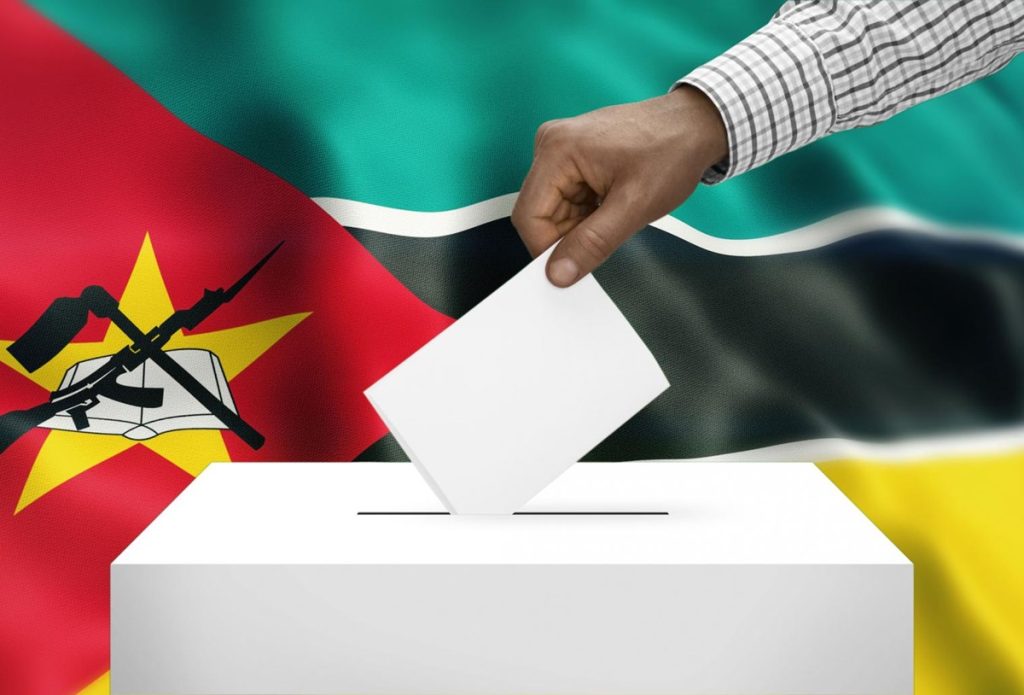Voters in Mozambique headed to the polls on Wednesday to elect a new president and parliament, with the ruling Frelimo party, in power for 49 years, widely expected to maintain its dominance.
The election takes place amid political tensions and challenges, including widespread poverty and inequality, as well as ongoing jihadist violence in the northern region, which has hindered major gas projects.
Outgoing President Filipe Nyusi, 65, cast his vote early, as polling stations opened at 7:00 a.m. (0500 GMT).
As he prepared to step down after reaching the two-term limit, Nyusi urged citizens to maintain peace and avoid premature announcements of the election results, saying, “I would also ask that no group of citizens agitates or threatens others, that everything happens in peace and tranquillity and that we avoid announcing the results ahead of time.”
The political climate has been strained, particularly following the 2023 municipal elections, which were marred by accusations of fraud. The allegations of rigged results sparked protests in major cities, where police reportedly killed several demonstrators. The results of this week’s elections, which include choosing provincial governors, are anticipated within the next two weeks.
Frelimo’s candidate to succeed Nyusi is Daniel Chapo, a 47-year-old provincial governor. His election would signal a generational shift, as he would be the first president born after Mozambique’s independence from Portugal in 1975 and the first not involved in the civil war between Frelimo and Renamo. After casting his vote, Chapo, like Nyusi, called for calm during the electoral process.
Chapo faces competition from Renamo leader Ossufo Momade, aged 63, and Venancio Mondlane, a 50-year-old politician who previously contested the 2023 mayoral race under Renamo but left the party, alleging electoral fraud.
Mondlane, popular with younger voters, joined the smaller Optimistic Party for the Development of Mozambique (Podemos). Another contender, Lutero Simango, 64, leads the centre-right Mozambique Democratic Movement and is a vocal critic of Frelimo, accusing its leaders of corruption.
Many Mozambican voters expressed their desire for change despite analysts doubting that the elections would significantly alter the political landscape.
“We need a change, we need things to work,” said Leta Decastro, 43, at a polling station.
Also, forest engineer Gisela Guambe, 42, voiced her hope for a shift in the parliamentary dynamic, desiring a more robust debate and a stronger opposition presence.
However, political analysts remain sceptical. Domingos Do Rosario, a political science lecturer at Eduardo Mondlane University, questioned the transparency of the electoral process, calling the electoral commission “a joke” and casting doubt on the registration of 17 million voters.
Researcher Borges Nhamirre from the Institute for Security Studies also raised concerns, highlighting electoral integrity challenges.
Mozambique continues to grapple with severe socio-economic challenges. According to the African Development Bank, in 2023, over 74% of the population lived in poverty.
The discovery of significant gas reserves in 2010 had promised economic growth, but insurgent activity in the Cabo Delgado region led companies like ExxonMobil and TotalEnergies to halt their projects.
Analyst Aleix Montana emphasised that Mozambique’s new leadership must prioritise economic recovery, manage high public debt, and address delays in energy projects due to the northern insurgency.

